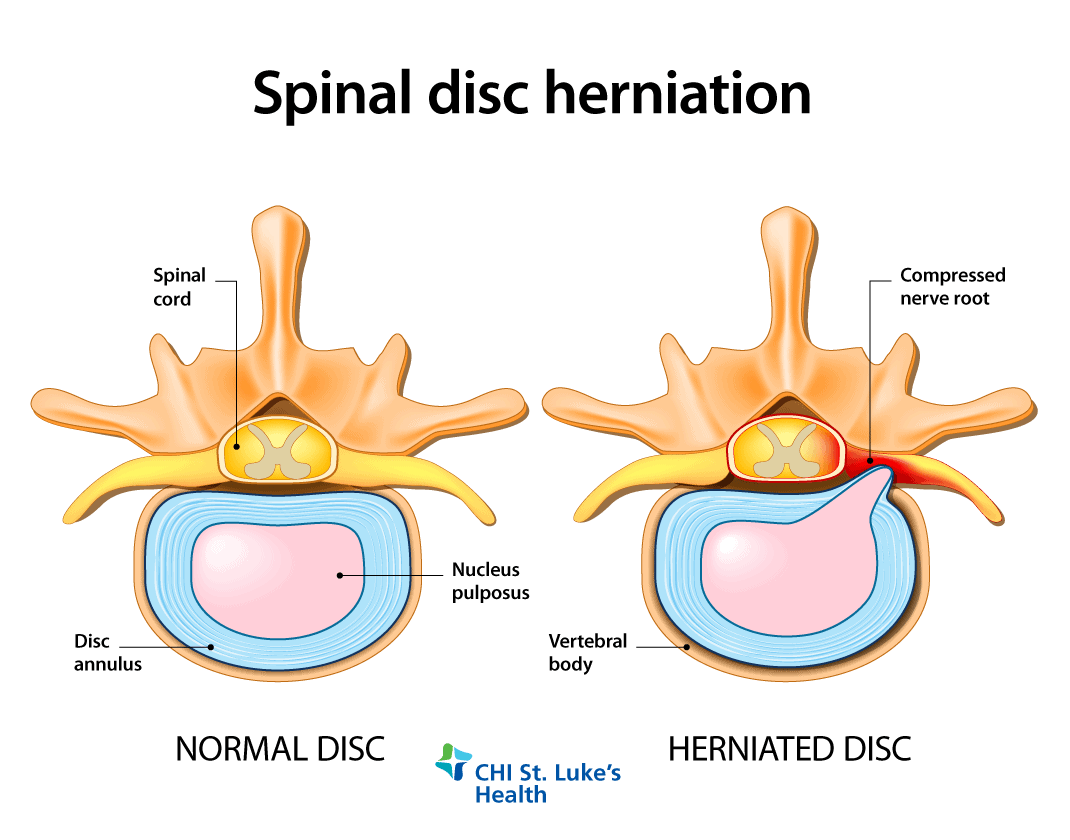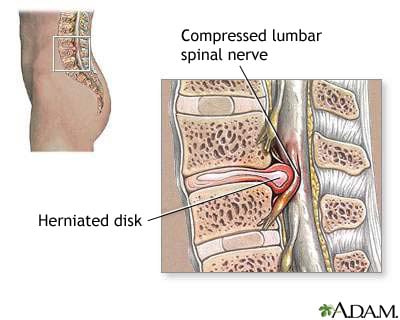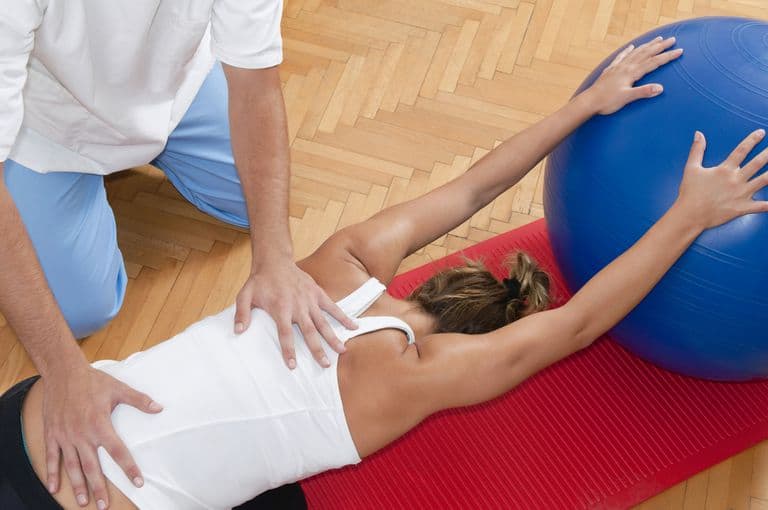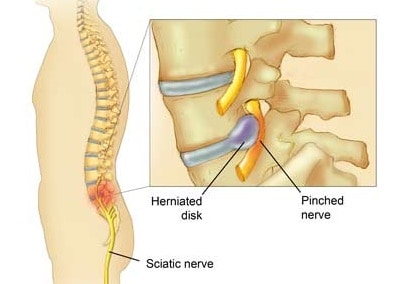The other night I was watching one of the hundreds of medical shows on television with my grandma. A patient came in with a herniated disc along with a metal rod through his chest. My grandma looked at me and said, “What’s a herniated disc Beth Ann?”.
What it is
The spine is formed out of vertebrae that are cushioned by discs. These discs act as shock absorbers between each of the vertebrae in the spinal column. In the middle of each disc is a gel like center called the nucleus. The nucleus is surrounded by a tough outer layer called the annulus.
A herniated disc is also referred to as a slipped disc, a bulged disk, or a ruptured disc. This occurs when the vertebrae below and above put pressure on part or all of the nucleus pulposus through a weakened or torn part of the annulus. Pain is a resultant of this due to the herniated nucleus pulposus pressing on the nerves near the disk.
Herniated disks are very common, occurring in men more often than women. People between 35-55 years old have a higher chance of getting a herniated disc.
Symptoms
Depending on the location and size of the herniated disc, you may not even have symptoms.
For a lower-back herniated disc, there are some symptoms to look for. Pressure on one or several nerves can cause sciatic nerve pain, burning, tingling, and numbness. This pain will radiate from the butt into the leg and even the foot, sometimes getting more severe with standing, walking, or sitting. Besides just leg pain, you may even experience low back pain.
A herniated disk in the cervical region or neck can include a dull or sharp pain in the neck or between your shoulder blades. Also, numbness and tingling in the arm or shoulder and a radiating pain down to the hand or fingers. Pain can increase with different positions or movements of your nec k as well.
k as well.
If the herniated disc is located in the mid back, the symptoms are vague. You may have pain in the lower back or upper back along with the abdomen and legs. Possibly even some weakness in one or both legs.
Causes
Herniated discs can be caused by just one excessive strain or injury. But, as someone gets older, the disc and ligaments that hold it in place do begin to degenerate and weaken.
Testing and Diagnosis
- X-Rays. This imaging shows the structure of your vertebra along with the outline of the joints. X-rays are taken to help look for other problems or potential causes of pain, tumors, infections, and fractures.
- CT or CAT scan. This image is created after the computer reads X-rays. It shows the size and shape of your spinal canal and the contents/structures around it.
- MRI. This test produces 3-D images of your body structure. The spinal cord along with its nerve roots and surrounding areas will be shown. This test is the most frequent test used.
- Myelogram. This kind of X-ray is taken of the spinal canal after an injection of a contrast material into the surrounding cerebrospinal fluid spaces is done. The image may show pressure on either the spinal cord or nerves that could be due to a herniated disc, bone spur, or tumor.
- EMG and NCS. These two tests measure the electrical impulse that runs along the nerve roots, peripheral nerves, and muscle tissue. This test indicates if there is ongoing nerve damage, if the nerves are healing from a past injury, or if there may be another site of nerve compression. EMGs are infrequently used.

Treatment
Proper treatment depends on the severity of your herniated disk. Treatment options include physical therapy, multiple types of medication, cortisone injections, and surgery. However, recent studies have shown herniated discs may heal on their own.
At physical therapy, the therapist will start with an in-depth evaluation of you. They will then take this evaluation and design a program specifically to you which can include anything such as an ice massage, ultrasound, e-stim, stretches, and strengthening exercises. Surgery may become an option if medications and physical therapy do not help with the pain. The benefits of surgery should be looked at along with the risks of surgery. Though a huge amount of people feel relief with surgery, there is no guarantee it will help you.
If you feel like you might have a herniated disc, please contact your doctor.

